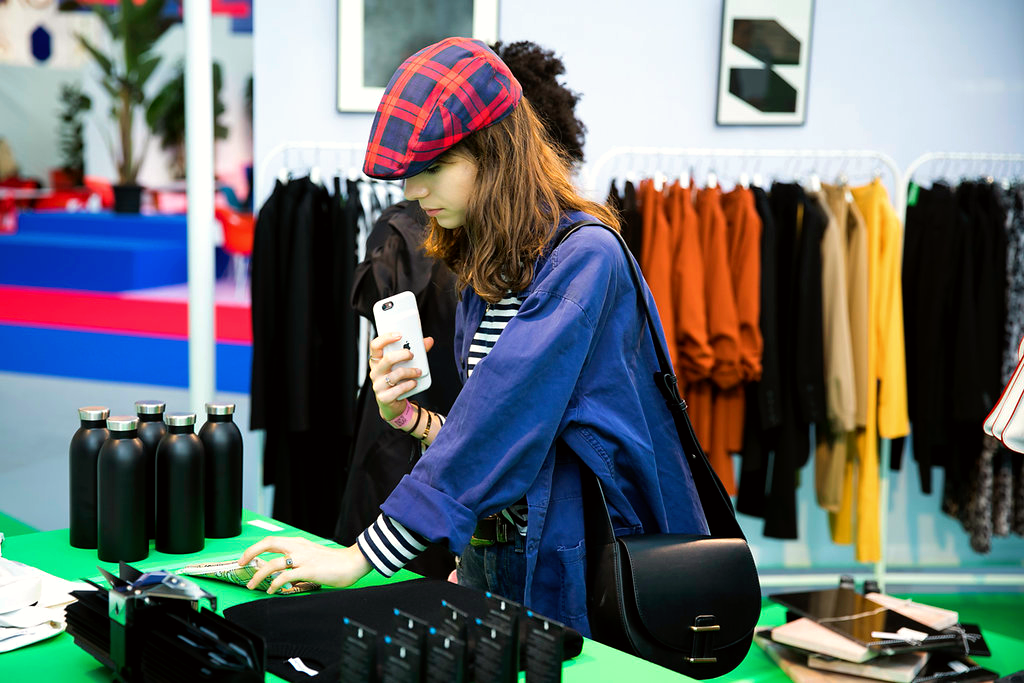The digitisation of retail: how is Generation Z shaping future shopping behaviour?
There’s a Dutch saying that equates roughly to ‘Youth has the future’. And this certainly applies in the world of fashion; not only when it comes to designs and establishing new brands: the latest generation of consumers is also having a major impact on how we shop. Say hello to Generation Z, the consumer of the future raising the digital expectations of storekeepers and retailers. What does this generation expect from their shopping experience? And how can retailers and storekeepers engage with them?
Gen Z and their digital world
In 2020, online shopping has become the new norm, and is offering formidable competition to traditional shopping streets and department stores. We’re witnessing a transition from the current generation of millennials – people born between 1980 and 2000 – to the younger Generation Z. This latest group of consumers, born from 1996 onwards, are currently influencing the future of retail. The oldest members of Gen Z are gradually beginning to join the millennials on the labour market, boosting their purchasing power. In 2020, Gen Z even make up 40% of the global consumer population, making them a significant and influential group in the retail world (Klarna).

In contrast to millennials, who grew up alongside technological advancement, Gen Z is born into a completely digital world. Technology is no longer an accessory to this group, but rather the cornerstone of their lives. Research conducted by media agency Glossy reveals that more than 80% have made a purchase using their smartphone. This generation therefore also expects the development of the available technology within the retail world to mirror their own.
And yet the physical aspect has not faded into complete insignificance for this group; research by Afterpay and The Future Laboratory even suggests that 73% of Gen Z enjoy discovering new products in stores. Research conducted by Accenture concludes that the store environment therefore needs to facilitate an ultra-personalised shopping experience, which is an extension of the brand. This is much easier to apply online using data, and the expectation is that the approach will be expanded to include physical stores. It’s not one or the other for Gen Z shoppers; their shopping strategy combines multiple platforms; from pop-up shops and department stores to Instagram and online retailers, as indicated by research agency McKinsey.

Authentic message and efficient shopping
Thanks to this digitisation, Gen Z shoppers are particularly after brands offering greater flexibility and efficiency, to make online shopping easier and quicker. New e-commerce strategies focused on seamless mobile payment and speedy delivery are essential in order to improve the online shopping experience (Accenture). Research by Klarna shows that a whopping 94% of Gen Z shoppers are more inclined to make a purchase from a brand or webstore if the ordering process is quick and easy. If this doesn’t run smoothly, more than half of these shoppers (54%) are quickly irritated. If Gen Z shoppers are not given what they want with appropriate speed, they switch to a new brand or a different retailer with the nonchalant ease of a swipe.
McKinsey also argues that the significant values underlying a brand are of increasing importance to this future generation of shoppers, and it is therefore even more important that relevant marketing strategies are adjusted. Research conducted by First Insight reveals that Gen Z are three times more concerned than other consumer groups about retailers reflecting their personal values and being dedicated to transparency and corporate social responsibility. More than 70% state that the most important reason for following a brand or webstore is that its brand identity corresponds with their personal vision (Klarna). It is therefore vital that brands are aware of which magazine, influencer or celebrity can most authentically get their message across, in order to establish an emotional connection with the consumer target group. Because that is precisely what matters to this new generation; an authentic connection with a brand that is about more than simply the product they are selling.
Did you know that?*
- In 2020, Gen Z makes up 40% of the global consumer population
- More than 70% of Gen Z shoppers state that the most important reason for following a brand or webstore is that its brand identity corresponds with their personal vision
- 73% of Gen Z enjoy discovering new products in stores
- 94% of Gen Z shoppers indicate being more inclined to make a purchase from a brand or webstore if the ordering process is quick and easy
- Gen Z and millennials think the most annoying thing about online shopping is not knowing for sure if something fits (64%) and having to pay for delivery and returns (39%)
*From research by Klarna.
Written by Lara Oliveri.
Share article
